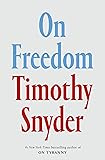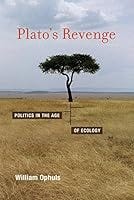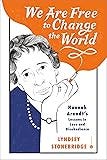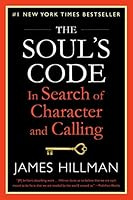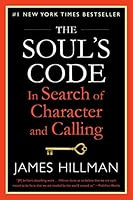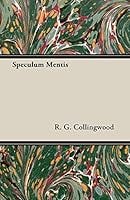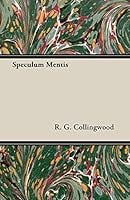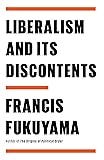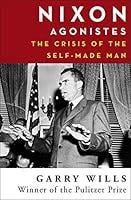In practice, the virtues compete with one another. I might like to be punctual, but I should also be patient. I might wish to be a person of integrity, but sometimes I should compromise. We might value skepticism, yet we have faith. Love is blind, but it takes discernment to know what not to see. That leads us to the fifth rule: combinability. People can bring together virtues in creative ways and sometimes create new ones.
The essential task is therefore to foster a social and economic setting conducive to a politics that is sane, humane, participatory, and ecological.
True, but it doesn’t seem at all that we’re headed that way.
We Are Free to Change the World
She [Hannah Arendt] would never forget how supposedly clever people made bad moral and political decisions in the 1930s and then pretended that they hadn’t. Never again! I shall never again get involved in any kind of intellectual business! she firmly instructed herself after she left Germany. Philosophy might teach you to think for yourself, but politics and history meant that smart Jewish girls would eventually have to find their own way across the bridges.
How many will we come to know from our time who will conveniently forget their role in bringing down American democracy and the rule of law?
The upshot of genetic studies leads in two (!) directions: a narrow path and a broad one. The narrow road heads toward simplistic, monogenic causes. It wants to pinpoint bits of tissue and correlate them with the vast complexity of psychic meanings. The folly of reducing mind to brain never seems to leave the Western scene. We can never give it up because it is so basic to our Western rationalist and positivist mind-set. The rationalist in the psyche wants to locate causes you can put your hands on and fix.
Machines provide the best models for meeting this desire. Take them apart, find their inner mechanisms, and then adjust their functioning by modifying their ratchets, enriching their fuel, greasing their connections. Henry Ford as father of American mental health. Result: Ritalin, Prozac, Zoloft, and dozens of other effective products for internal adjustment that we consume in abundance, millions of us, daily or twice daily. The simplistics of monogenic causes eventually leads to the control of behavior by drugs—that is, to drugged behavior.
If today our civilization is turning toward the environment to stave off ecological disaster, the first step of this rapprochement with nature is to cross the threshold of the parental house into the home of the world. We are parented by everything around us—if “parenting” means watching, instructing, encouraging, and admonishing. Do you really believe that humans invented the wheel out of their big brains alone, or fire, or baskets, or tools? Stones rolled downhill; bolts of fire shot from the sky and out of the earth; birds wove and probed and pounded, as did apes and elephants. The sciences that master nature were taught by nature how it could be mastered.
Mother Nature as a parent along with Father Time.
In the present state of opinion, I hesitate to acknowledge a belief in the possibility of a philosophical system, and to confess the crime of offering the reader, in the present volume, a crude sketch of such a system. I do not expect the critic to spare his blows: I only say ‘strike, but hear me’. The hatred of systematic thought is not in my opinion a fault, it is based on recognizing two important truths, first, that no system can ever be final, and secondly, that a coherent system is so difficult a thing to achieve that any one who claims to have achieved it is probably deceiving himself or others. I do not claim to have achieved it. I only confess that I am aiming at it as at a counsel of perfection, and that I regard the deliberate renunciation of this ideal as the degradation of philosophy to a game, one of the most tedious and stupid of games.
Me thinks he likes not the word games of the analytic school growing around him.
Every one knows that our civilization is in difficulties, and the stupidity of the suggested remedies only indicates the gravity of the disease, for a sick society has to diagnose and cure its own complaint, and the worse the complaint, the wilder the diagnosis is likely to be But no one denies the disease.
RGC published this book in 1924. But it could have been written for today.
Liberalism and Its Discontents
Liberalism has been challenged in recent years not just by populists of the right, but from a renewed progressive left as well. The critique from this quarter evolved from a charge—correct in itself—that liberal societies were not living up to their own ideals of equal treatment of all groups. This critique broadened over time to attack the underlying principles of liberalism itself, such as its positing of rights in individuals rather than groups, the premise of universal human equality on which constitutions and liberal rights have been based, and the value of free speech and scientific rationalism as methods of apprehending truth.
We are in danger of losing these aspirations of liberalism to the great detriment of ourselves and those who will follow us.
It is the great myth of liberalism that this openness toward ideas exists in the academy; and it is the vulnerable nature of this myth that gives Marcuse’s young disciples an easy target. All the institutionalized insincerities of the academy grow out of this myth—the conflict between egalitarian justification and privileged practice, between state support and disestablishmentarianism, between equal rating (to enlighten every citizen) and invidious rating (exclusion from entry, comparative grading, expulsion on academic grounds), between disinterestedness and professional competition, between dissent and conformity.




